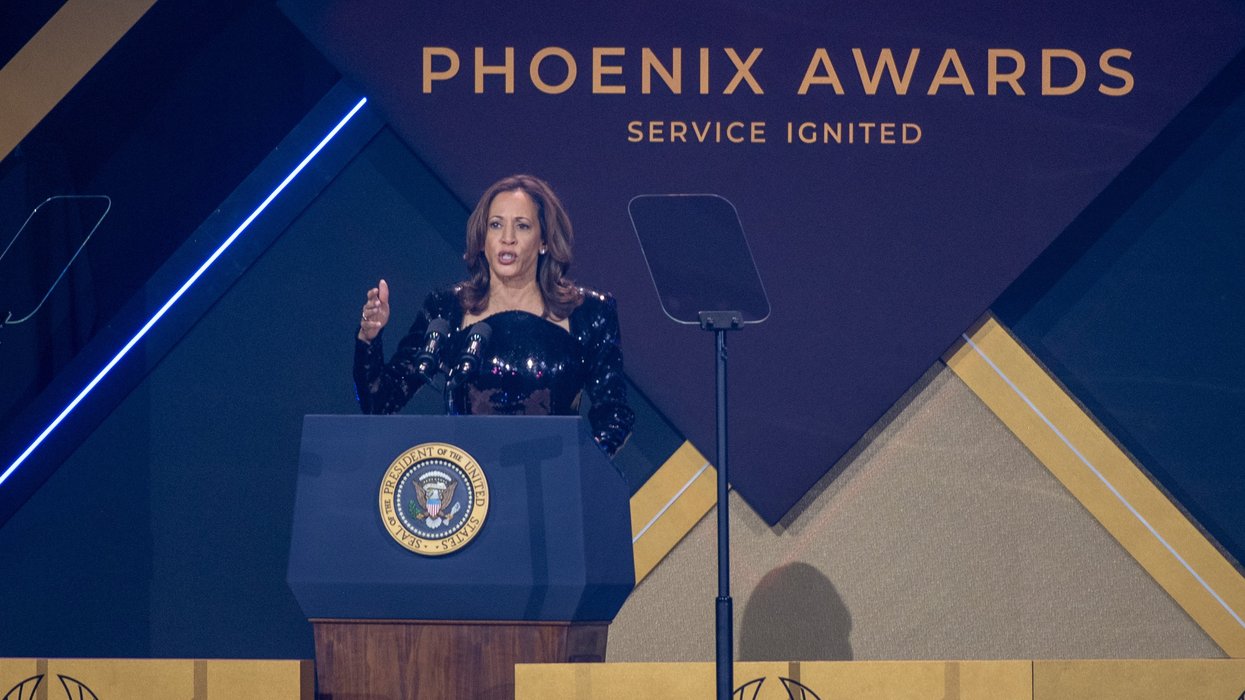Becvar is co-publisher of The Fulcrum and executive director of the Bridge Alliance Education Fund.
In August, The Fulcrum and Fidelum Partners joined to develop the 2024 US Celebrity & Politician Warmth & Competence Study. Building upon similar studies conducted by Fidelum in 2016 and 2020, the report offers updated insights into voter perceptions of political candidates and similar evaluations of celebrities.
The research is rooted in the social psychology approach known as the Stereotype Content Model, founded on a belief that the combination of perceived warmth and competence leads to different emotions and behaviors toward those social groups. Perceptions of warmth reflect friendliness or trustworthiness, and perceptions of competence reflect capability or effectiveness.
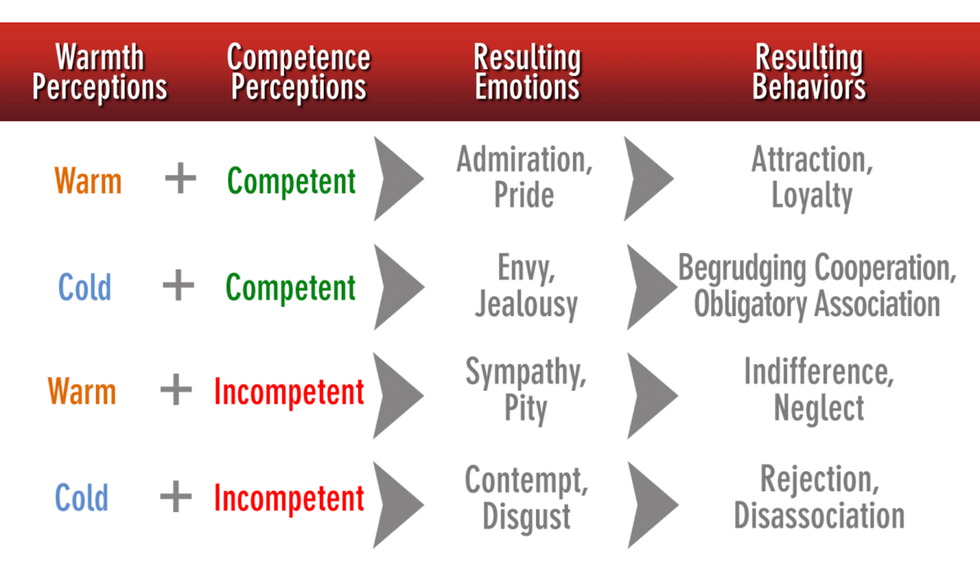 Universal drivers of human behaviorTrends in Cognitive Sciences
Universal drivers of human behaviorTrends in Cognitive Sciences
That premise was applied to consumer and brand research and interpersonal relationships by Fidelum Partners, leading to the Brands as Intentional Agents Framework. They concluded that humans perceive, interact, and become loyal to companies and brands like we do other people — based on their warmth and competence.
One of the co-researchers on the development of the framework, Susan Fiske, applied the model to an analysis of effective communication around climate change science. The literature and research confirmed that perceptions of warmth and competence were accurate indicators of determining trusted messengers. The evaluations of scientists as high in competence show that the public largely respects scientists — however, the low evaluations of warmth manifest as trustworthiness.
Sign up for The Fulcrum newsletter
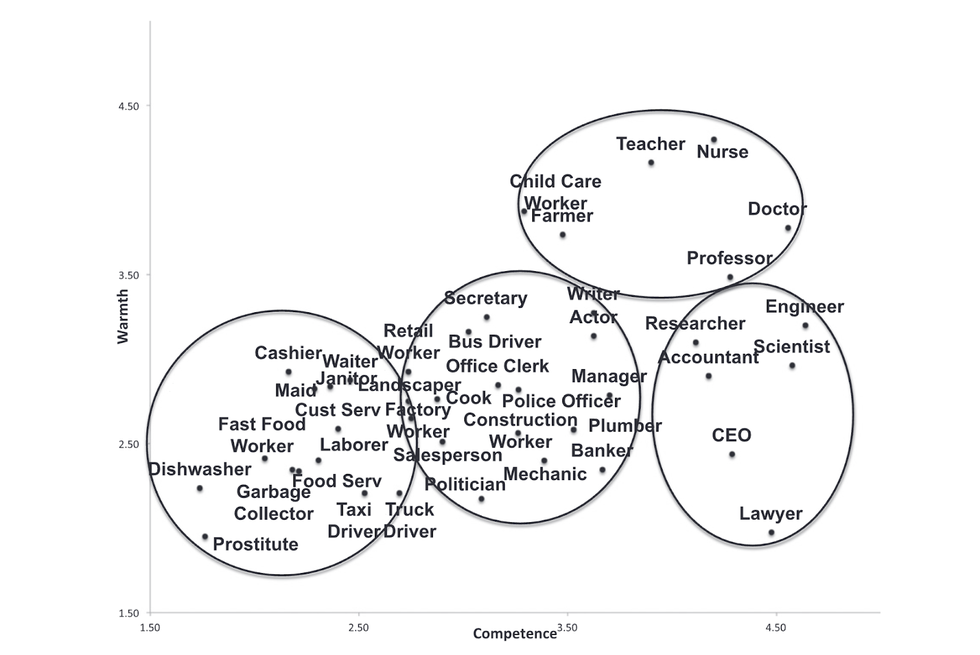 Figure of rankings of perceptions of warmth and competence among professions, indicating scientist and researchers to be in the high-competence, low-warmth sector.Proceedings of the National Academy of Sciences
Figure of rankings of perceptions of warmth and competence among professions, indicating scientist and researchers to be in the high-competence, low-warmth sector.Proceedings of the National Academy of Sciences
In both cases, the dimensions of perception and belief — whether in the context of brand marketing or climate research — are central to influencing attitudes, behaviors, and decisions. How do those perceptions give us insight into celebrities and politicians?
Emotional perceptions have shifted the American electorate from voting based on personal interests to voting based on their perceived inclusion on a social “team.” The type of partisan-ideological sorting played out in recent decades has led to the feeling that every aspect of the social world around us can be divided into supporting one of those teams. Social science researchers have established a deep body of research on the effects of polarization on partisanship. It is clear that though any individual's choice to vote for Donald Trump or Kamala Harris in November may be about their policies, it is undoubtedly also tied to their sense of identity — to a much higher degree than it would have been decades ago.
Similarly, it is reasonable to consider whether the well-established indicators of trust and capability have become more influential to voters than policy positions or social issues.
This shift poses a thought-provoking question: As we move toward the 2024 election, could public figures outside of traditional politics start to wield even more significant influence on voter sentiment? And more importantly, what does it say about the electorate when celebrities are perceived as more competent leaders than those running for the highest office in the land?
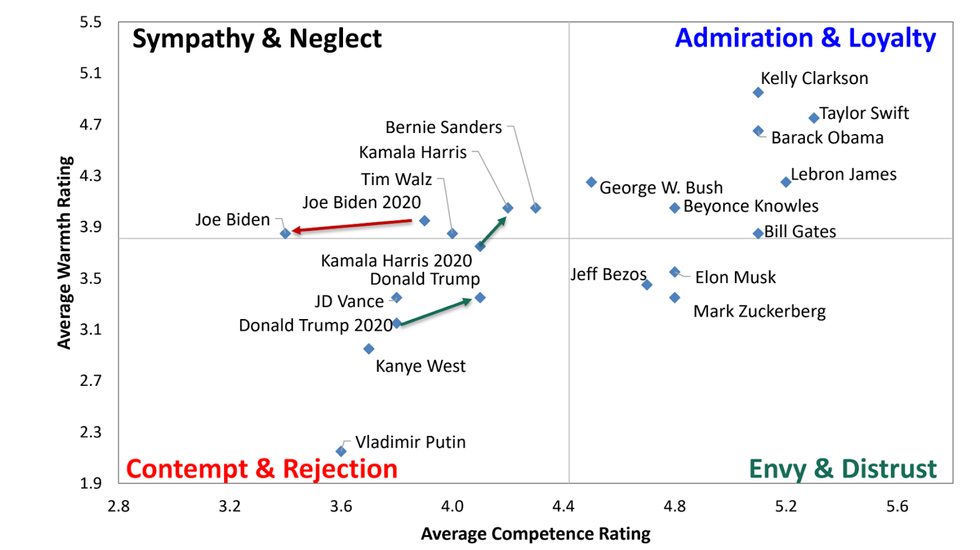 The 2024 map shows substantial changes in public perceptions of Joe Biden, Donald Trump and Kamala Harris since 2020.2024 US Celebrity & Politician Warmth & Competence Study
The 2024 map shows substantial changes in public perceptions of Joe Biden, Donald Trump and Kamala Harris since 2020.2024 US Celebrity & Politician Warmth & Competence Study
In the first analysis of the 2024 study on celebrities and politicians' warmth and competence, both perceptions have decreased for Joe Biden, while evaluations of both have increased for Harris and Trump. However, none of the three showed up in the quadrant of high warmth and competence either in 2020 or 2024 — the highest rated in both qualities among politicians remains Barack Obama. However, Obama is considered less warm and less competent than both Kelly Clarkson and Taylor Swift.
Does that mean that in an open ballot, our first female president could be President Clarkson? It's safe to say that isn't the case. In a head-to-head evaluation, 11 percent of people would vote for Clarkson, while 37 percent would vote for Harris. Clearly, voters haven't completely foregone considering policy in favor of feelings.
While warmth and competence dominate the election landscape, social and political beliefs about economic fairness, immigration, and corporate profits are not insignificant. Thirty-six percent (36%) of Trump's and 37 percent of Harris's support stems from such issues.
However, the politician who would receive the highest percentage of votes among survey respondents, Obama, tells us that warmth and competence perceptions are also necessary to seal the deal.
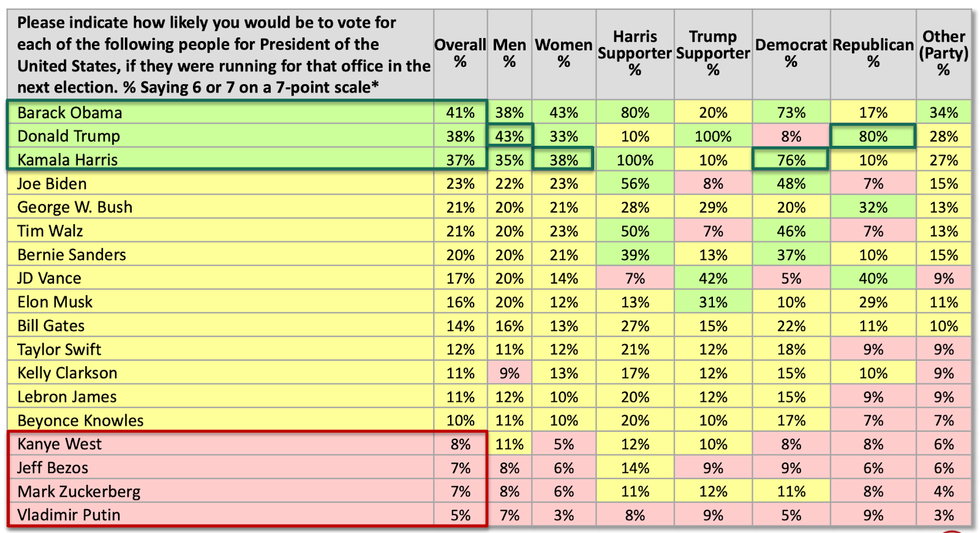 The 2024 results of respondent likelihood to vote for politicians and celebrities.2024 US Celebrity & Politician Warmth & Competence Study
The 2024 results of respondent likelihood to vote for politicians and celebrities.2024 US Celebrity & Politician Warmth & Competence Study
